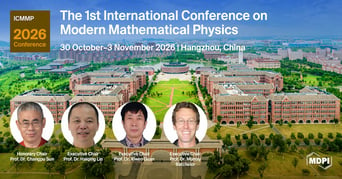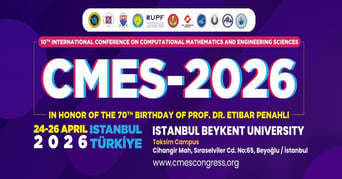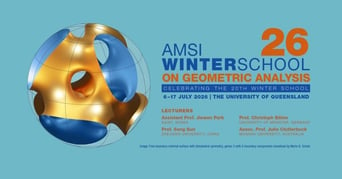- 2.2Impact Factor
- 4.6CiteScore
- 18 daysTime to First Decision
News & Conferences
Latest News & Announcements
Latest Conferences
Propose a Conference Collaboration
Promote and publicise your upcoming conference with MDPI.
All News & Conferences
News & Announcements
MDPI Virtual Academic Publishing Workshop (New Harvest), 25 February 2026
20 February 2026
News & Announcements
MDPI’s Open Access Program Reaches 1,000 Institutions Worldwide
18 February 2026
News & Announcements
Interview with Dr. Federico Nudo—Winner of the Mathematics Travel Award
6 February 2026
News & Announcements
Acknowledgment to the Reviewers of Mathematics in 2025
4 February 2026
News & Announcements
MDPI INSIGHTS: The CEO's Letter #31 - MDPI 30 Years, 500 Journals, UK Summit, Z-Forum Conference, APE
2 February 2026
News & Announcements
International Day of Clean Energy—“Clean Energy: For All and for Our Planet”, 26 January 2026
23 January 2026
News & Announcements
“Do Not Be Afraid of New Things”: Prof. Michele Parrinello on Scientific Curiosity and the Importance of Fundamental Research
22 January 2026
News & Announcements
Prof. Xin-Gao Gong Appointed Chair of the Michele Parrinello Award Committee
22 January 2026
30 October - 3 November 2026
Partner Conference
The 10th International Conference on Computational Mathematics and Engineering Sciences (CMES-2026)
24 - 26 April 2026
Partner Conference
AMSI Winter School 2026
6 - 17 July 2026
News & Announcements
MDPI’s Newly Launched Journals in December 2025
9 January 2026
of 28














